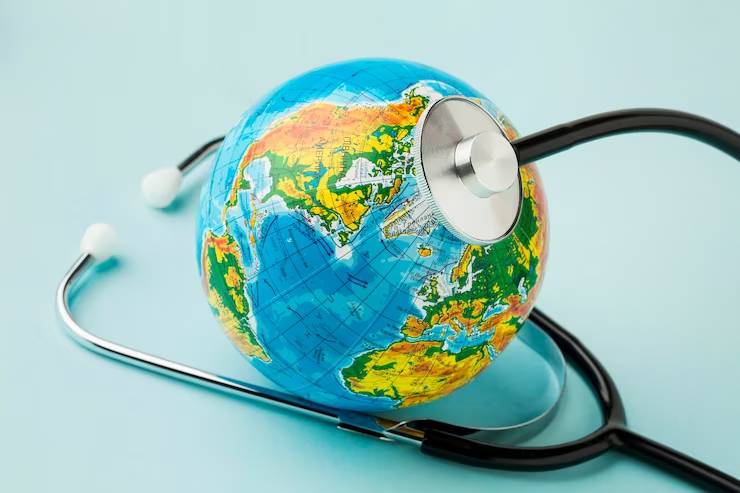‘This year’s World Health Day will shine on nurses and midwives, the on-the-call, relentless workforce that revolutionized the healthcare industry as we know it today,’ says the World Health Organization (WHO).

The International Confederation of Midwives, an association with 108 member associations in 98 countries, projects a global shortage of 900,000 midwives and those in the sector continue to face discrimination, poor working environments and unequal pay. They are left out of health leadership. “Midwives need an enabling environment. Strategic litigation for better salaries is the need of hour,” says Viktoria Vivilaki, Associate Professor, Midwifery Department, University of West Attica, Greece and Elected board member of the International Midwives Confederation, representing Europe. “PUSH is a decade-long global movement for women and the midwives who protect and uphold their rights and bodily autonomy”.
Midwives work is foundational to the reproductive rights of women. Each year millions of lives are lost in childbirth because midwives skills are not recognized and are not prioritized. From providing access to contraception to the 220 million women and girls, to having the skills to prevent the loss of 2.7 million women and newborns who die needlessly every year in pregnancy and childbirth. Midwives are trained medical professionals with the skills to save 4.3 million lives every year and provide 90% of a women’s sexual and reproductive health, and activist for women’s health.
While on one end of the spectrum is the problem of providing basic health needs and a structured mechanism to encompass every health care provider with dignity and respect into the infrastructure of healthcare, the present climate crisis and global warming have put the healthcare system into sharp focus. The impact of climate change on human health is going to create a complexity in dealing with the situation for many years to come.
Dr. Sunil Bhat, Vice-Chairman, Oncology Collegium, Narayana Group of Hospitals and Director and Clinical HoD adds a host of climate-related health risks:
The present climate crisis has numerous adverse effects on human health, some of which include:
- Increased frequency and severity of extreme weather events such as heatwaves, droughts, floods, and storms, which can result in injuries, deaths, and displacement of people.
- Worsening air quality due to increased levels of pollutants such as ozone and particulate matter, which can exacerbate respiratory and cardiovascular diseases.
- Increased transmission of infectious diseases such as malaria, dengue fever, and Lyme disease, as the habitats of disease-carrying organisms expand due to rising temperatures.
- Food and water insecurity, which can lead to malnutrition, dehydration, and related health problems.
- Mental health issues such as anxiety, depression, and post-traumatic stress disorder due to climate-related disasters and displacement.
To address these adverse effects at a large scale, there are several actions that can be taken, such as:
- Reducing greenhouse gas emissions to mitigate the climate crisis and slow down its impacts on health.
- Investing in renewable energy and clean transportation to reduce air pollution and improve air quality.
- Developing and implementing climate-resilient infrastructure to prepare for and respond to extreme weather events.
- Improving water and food security to reduce malnutrition and related health problems.
- Strengthening healthcare systems to better respond to climate-related health risks, including infectious diseases and mental health issues.
- Promoting sustainable lifestyles and educating people on the health impacts of the climate crisis to increase awareness and foster behavioral changes.
These actions require coordinated efforts from governments, businesses, and individuals to effectively address the adverse effects of the climate crisis on human health.
Compounded to this, is the information overload or infodemic, which WHO defines as an overabundance of information – some accurate and some not – that makes it harder for people to find trustworthy sources and reliable guidance when needed. When occurring during an epidemic, its potential threat for public health is significantly amplified. An Infodemic Risk Index is the rate at which a user in a social network is exposed to potentially unreliable/biased information.
On World Health Day, as we look into the future, we need a decisive investment into health infrastructure and policies from governments and private sector alike to give rise to a healthy population that feels well supported emotionally and physically to be happy and productive in their life.

The author is Chair-Centre for Management Communication at IIM Bangalore and Affiliate Faculty, George Mason University and was recently invited by WHO for a technical consultation on building a global curriculum for infodemic management.
